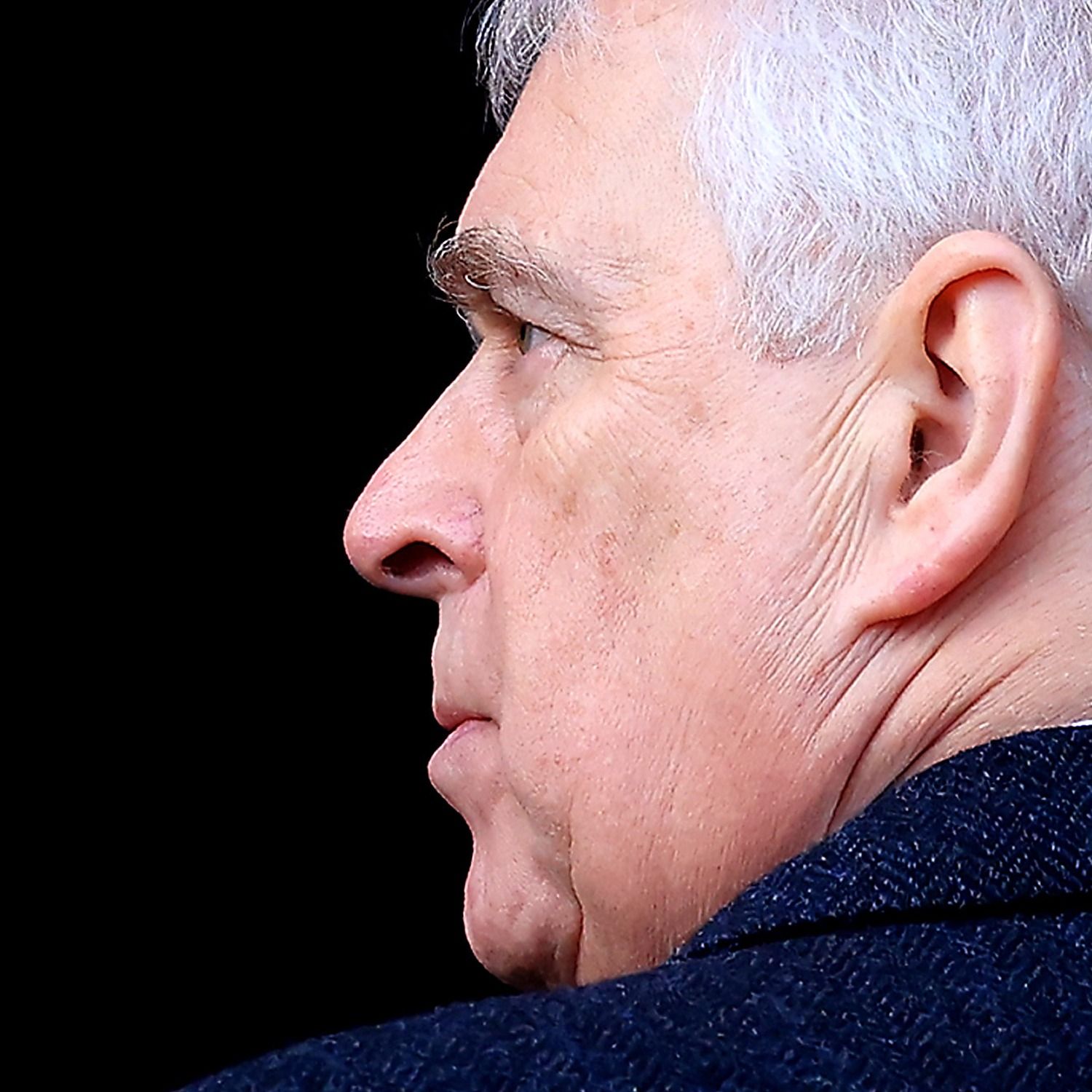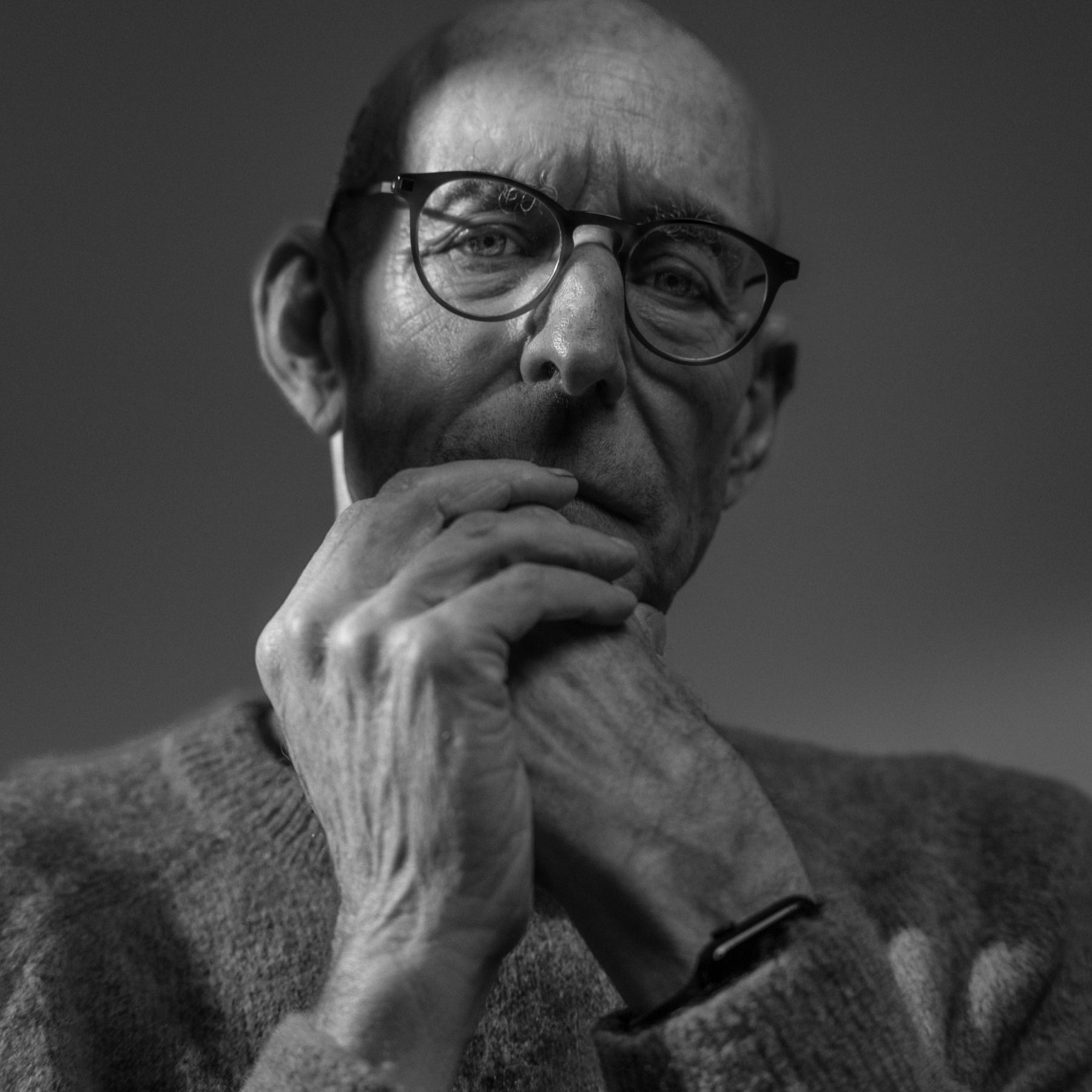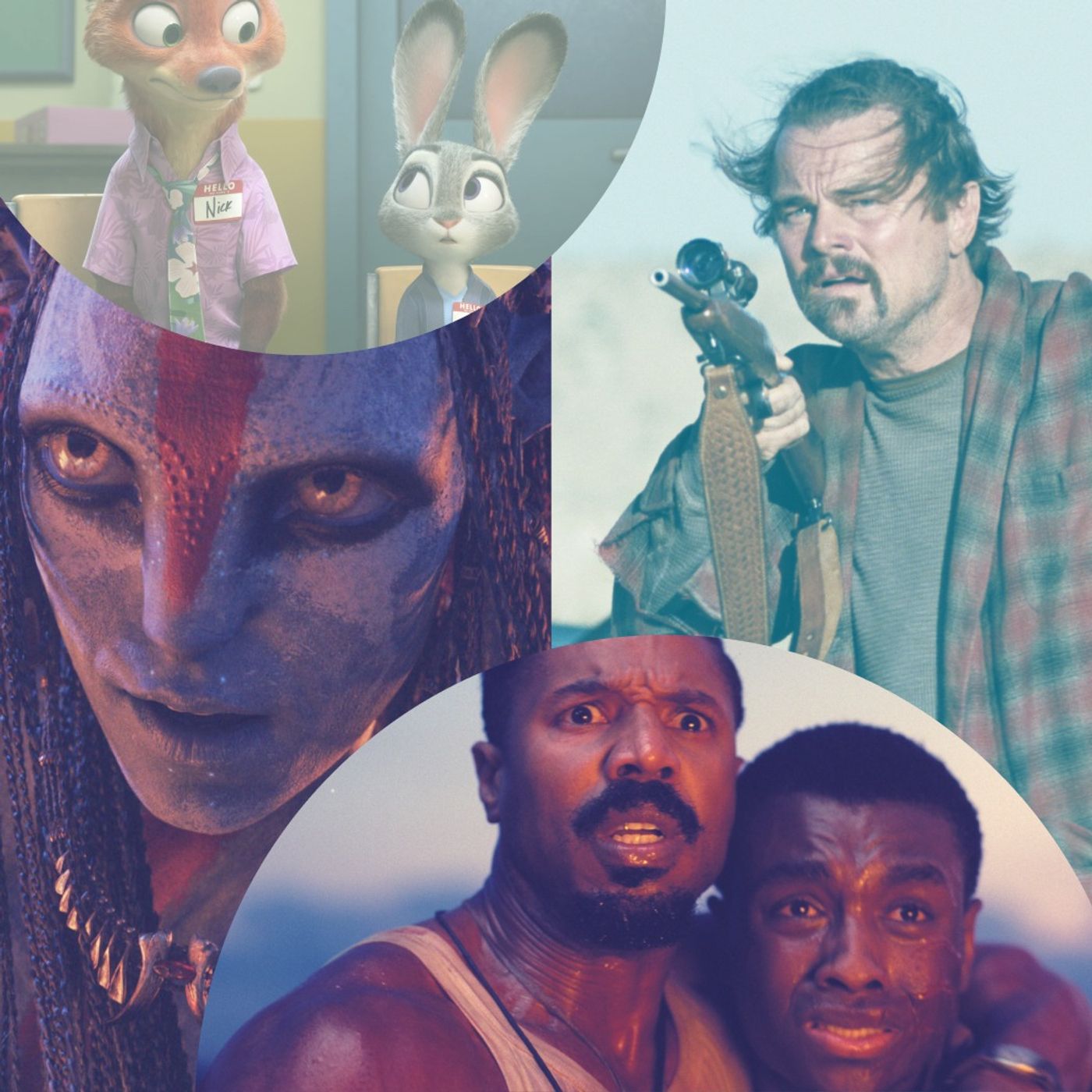Discover The Daily
The Daily

The Daily
Author: The New York Times
Subscribed: 1,992,459Played: 117,159,098Subscribe
Share
© 2020-2021 THE NEW YORK TIMES COMPANY; The New York Times encourages the use of RSS feeds for personal use in a news reader or as part of a non-commercial blog, subject to your agreement to our Terms of Service.
Description
This is what the news should sound like. The biggest stories of our time, told by the best journalists in the world. Hosted by Michael Barbaro, Rachel Abrams and Natalie Kitroeff. Twenty minutes a day, six days a week, ready by 6 a.m.
Subscribe today at nytimes.com/podcasts or on Apple Podcasts and Spotify. You can also subscribe via your favorite podcast app here https://www.nytimes.com/activate-access/audio?source=podcatcher.
Subscribe today at nytimes.com/podcasts or on Apple Podcasts and Spotify. You can also subscribe via your favorite podcast app here https://www.nytimes.com/activate-access/audio?source=podcatcher.
1393 Episodes
Reverse
In 2012, Tinder revolutionized dating apps with its swipe feature. With the flick of a finger, singles could accept or reject a potential mate. While this innovation has worked for many, some have grown weary of the simple swipe, and long for a more nuanced way to find love.
Today on “The Sunday Daily,” Rachel Abrams examines two dating tends on the rise: in-person mixers that are far from old-fashioned, and emerging A.I. technology that promises singles a ‘soul’ match. Rachel speaks with The New York Times’s dating columnist Gina Cherelus; Luke Vander Ploeg, a producer on the “Daily”; and Amanda Hess, a writer at large at The Times.
On Today’s Episode
Gina Cherelus covers dating for The New York Times.
Luke Vander Ploeg is a producer on The Daily.
Amanda Hess is a writer at large for The Times.
Photo: Mila De La Torre for The New York Times
For more information on today’s episode, visit nytimes.com/thedaily. Transcripts of each episode will be made available by the next workday.
Subscribe today at nytimes.com/podcasts or on Apple Podcasts and Spotify. You can also subscribe via your favorite podcast app here https://www.nytimes.com/activate-access/audio?source=podcatcher. For more podcasts and narrated articles, download The New York Times app at nytimes.com/app. Hosted by Simplecast, an AdsWizz company. See pcm.adswizz.com for information about our collection and use of personal data for advertising.
The self-help influencer on his values, his journey and criticism of his work.
Thoughts? Email us at theinterview@nytimes.com
Watch our show on YouTube: youtube.com/@TheInterviewPodcast
For transcripts and more, visit: nytimes.com/theinterview
Subscribe today at nytimes.com/podcasts or on Apple Podcasts and Spotify. You can also subscribe via your favorite podcast app here https://www.nytimes.com/activate-access/audio?source=podcatcher. For more podcasts and narrated articles, download The New York Times app at nytimes.com/app. Hosted by Simplecast, an AdsWizz company. See pcm.adswizz.com for information about our collection and use of personal data for advertising.
In a historic 6-3 decision, the Supreme Court ruled that President Trump’s sweeping global tariffs were illegal, jeopardizing a pillar of the president’s second term.
The New York Times chief legal affairs correspondent Adam Liptak explains the legal logic of the ruling and its potentially seismic impacts.
Guest: Adam Liptak, chief legal affairs correspondent for The New York Times.
Background Reading:
What Happens to All These Trade Deals Now?
Trump Tariff Tracker: Latest Rates on Countries and Products
For more information on today’s episode, visit nytimes.com/thedaily. Transcripts of each episode will be made available by the next workday.
Subscribe today at nytimes.com/podcasts or on Apple Podcasts and Spotify. You can also subscribe via your favorite podcast app here https://www.nytimes.com/activate-access/audio?source=podcatcher. For more podcasts and narrated articles, download The New York Times app at nytimes.com/app. Hosted by Simplecast, an AdsWizz company. See pcm.adswizz.com for information about our collection and use of personal data for advertising.
Warning: This episode mentions suicide.
Andrew Mountbatten-Windsor, the former Prince Andrew, was arrested by the British police on Thursday amid widening scrutiny over his ties to the disgraced financier Jeffrey Epstein.
The New York Times journalists Michael D. Shear and Nicholas Confessore explain why Mr. Mountbatten-Windsor was arrested and why, to many people, consequences still feel elusive.
Guest:
Michael D. Shear, a senior U.K. correspondent for The New York Times, covering British politics and culture and diplomacy around the world.
Nicholas Confessore, a New York-based political and investigative reporter at The New York Times and a staff writer at The New York Times Magazine.
Background reading:
The British police arrested former Prince Andrew.
The arrest casts a shadow over the royal family.
Photo: Stephen Pond/Getty Images
For more information on today’s episode, visit nytimes.com/thedaily. Transcripts of each episode will be made available by the next workday.
Subscribe today at nytimes.com/podcasts or on Apple Podcasts and Spotify. You can also subscribe via your favorite podcast app here https://www.nytimes.com/activate-access/audio?source=podcatcher. For more podcasts and narrated articles, download The New York Times app at nytimes.com/app. Hosted by Simplecast, an AdsWizz company. See pcm.adswizz.com for information about our collection and use of personal data for advertising.
Senator Catherine Cortez Masto of Nevada is nobody’s idea of a partisan firebrand. She’s a moderate, swing-state Democrat with a résumé steeped in law enforcement — all of which makes her an unlikely leader of the Democratic-led shutdown of the Department of Homeland Security, which has now entered its sixth day.But over the past few months, Senator Cortez Masto said she was horrified by the conduct of federal immigration enforcement agents in her own state and across the country. By last week, she and many of her Democratic colleagues in the Senate decided to act on their outrage.In an interview with her on “The Daily,” Senator Cortez Masto talks about why she decided to support withholding homeland security funding, the political perils for her party in blocking that funding and why she believes most Americans support the strategy.Guest: Catherine Cortez Masto of NevadaBackground reading: Democrats and the White House traded offers, but a deal to reopen the Department of Homeland Security remained elusive.A polling memo circulated among centrist senators urged Democrats to talk tougher on crime, while noting an opportunity for the party to appeal to voters with criticism of ICE.Photo: Eric Lee for The New York TimesFor more information on today’s episode, visit nytimes.com/thedaily. Transcripts of each episode will be made available by the next workday.
Subscribe today at nytimes.com/podcasts or on Apple Podcasts and Spotify. You can also subscribe via your favorite podcast app here https://www.nytimes.com/activate-access/audio?source=podcatcher. For more podcasts and narrated articles, download The New York Times app at nytimes.com/app. Hosted by Simplecast, an AdsWizz company. See pcm.adswizz.com for information about our collection and use of personal data for advertising.
“Vibecoding,” or using artificial-intelligence tools such as Claude Code to generate code for websites or apps, is the newest A.I. trend, and it could transform the software-development industry.Kevin Roose, a technology columnist for The New York Times, takes us inside the process.Guest: Kevin Roose, a technology columnist for The New York Times in the San Francisco Bay Area and a host of the Times tech podcast, “Hard Fork.”Background reading: Here is the website Kevin and Natalie built during the episode.Here are five ways people are using Claude Code.With “vibecoding," A.I. can help anyone build an app.Photo: Photo illustration by The New York TimesFor more information on today’s episode, visit nytimes.com/thedaily. Transcripts of each episode will be made available by the next workday.
Subscribe today at nytimes.com/podcasts or on Apple Podcasts and Spotify. You can also subscribe via your favorite podcast app here https://www.nytimes.com/activate-access/audio?source=podcatcher. For more podcasts and narrated articles, download The New York Times app at nytimes.com/app. Hosted by Simplecast, an AdsWizz company. See pcm.adswizz.com for information about our collection and use of personal data for advertising.
In this episode of “The Sunday Daily,” the host Rachel Abrams is joined by her New York Times colleagues Motoko Rich, Shawna Richer and Juliet Macur, who are all covering this year’s Olympic Games. They discuss how the geopolitical climate may or may not be influencing the competition, and talk about some of the extraordinary athletes who are pushing the limits of physical achievements.On Today’s EpisodeMotoko Rich is the Rome bureau chief for The New York Times.Juliet Macur is a national reporter covering sports for The New York Times.Shawna Richer is an editor at The New York Times, working on coverage of sports in America.Photo Illustration by The New York Times; Images: Sarah Stier/Getty ImagesFor more information on today’s episode, visit nytimes.com/thedaily. Transcripts of each episode will be made available by the next workday.
Subscribe today at nytimes.com/podcasts or on Apple Podcasts and Spotify. You can also subscribe via your favorite podcast app here https://www.nytimes.com/activate-access/audio?source=podcatcher. For more podcasts and narrated articles, download The New York Times app at nytimes.com/app. Hosted by Simplecast, an AdsWizz company. See pcm.adswizz.com for information about our collection and use of personal data for advertising.
Gisèle Pelicot opens up about surviving years of secret abuse and her life today.Thoughts? Email us at theinterview@nytimes.comWatch our show on YouTube: youtube.com/@TheInterviewPodcastFor transcripts and more, visit: nytimes.com/theinterview
Subscribe today at nytimes.com/podcasts or on Apple Podcasts and Spotify. You can also subscribe via your favorite podcast app here https://www.nytimes.com/activate-access/audio?source=podcatcher. For more podcasts and narrated articles, download The New York Times app at nytimes.com/app. Hosted by Simplecast, an AdsWizz company. See pcm.adswizz.com for information about our collection and use of personal data for advertising.
The best-selling author grapples with big questions about A.I., consciousness and the distractions polluting our minds.Thoughts? Email us at theinterview@nytimes.comWatch our show on YouTube: youtube.com/@TheInterviewPodcastFor transcripts and more, visit: nytimes.com/theinterview
Subscribe today at nytimes.com/podcasts or on Apple Podcasts and Spotify. You can also subscribe via your favorite podcast app here https://www.nytimes.com/activate-access/audio?source=podcatcher. For more podcasts and narrated articles, download The New York Times app at nytimes.com/app. Hosted by Simplecast, an AdsWizz company. See pcm.adswizz.com for information about our collection and use of personal data for advertising.
At the Grammy Awards tonight, the Puerto Rican pop sensation Bad Bunny is the first Spanish-language artist to be nominated for album, record and song of the year simultaneously. For most artists, this would be the high point of their year, if not their career. For Bad Bunny, this is just an appetizer for what’s in store for him next week.Next Sunday, he will headline the Super Bowl halftime show. His performance comes in the middle of a nationwide crackdown on immigration — an issue he’s been vocal about — and follows a backlash against the N.F.L. for booking him in the first place.Jon Caramanica and Joe Coscarelli, the hosts of The Times’s pop music show “Popcast,” discuss Bad Bunny’s rise to the heights of pop stardom, and explore what it means for a Puerto Rican artist to headline the world’s biggest stage.On Today’s Episode:Jon Caramanica is a pop music critic at The New York Times and a co-host of “Popcast.”Joe Coscarelli is a culture reporter for The New York Times who focuses on popular music and a co-host of “Popcast.”Background Reading:Grammys 2026: Who Should Win the Biggest AwardsBad Bunny Talks Coming Back Home on His ‘Most Puerto Rican’ Album YetGet to Know Bad Bunny in 9 SongsPhoto: Mario Anzuoni for Reuters.
Subscribe today at nytimes.com/podcasts or on Apple Podcasts and Spotify. You can also subscribe via your favorite podcast app here https://www.nytimes.com/activate-access/audio?source=podcatcher. For more podcasts and narrated articles, download The New York Times app at nytimes.com/app. Hosted by Simplecast, an AdsWizz company. See pcm.adswizz.com for information about our collection and use of personal data for advertising.
Pop culture has not been kind to the Neanderthal. In books, movies and even TV commercials, the species is portrayed as rough and mindless, a brutish type that was rightly supplanted by our Homo sapiens ancestors.But even 40,000 years after the last Neanderthals walked the earth, we continue to make discoveries that challenge that portrayal. New research suggests Neanderthals might have been less primitive — and a lot more like modern humans — than we might have thought.The Times science reporters Carl Zimmer and Franz Lidz discuss recent discoveries about Neanderthals, and what those discoveries can tell us about the origins of humanity. On Today’s Episode:Carl Zimmer writes the Origins column and covers news about science for The Times.Franz Lidz writes about archaeology for The Times. Background Reading:The Year in NeanderthalsMorning Person? You Might Have Neanderthal Genes to Thank.What Makes Your Brain Different From a Neanderthal’s?The Neanderthal Inside Us Photo: Frank Franklin II/Associated Press
Subscribe today at nytimes.com/podcasts or on Apple Podcasts and Spotify. You can also subscribe via your favorite podcast app here https://www.nytimes.com/activate-access/audio?source=podcatcher. For more podcasts and narrated articles, download The New York Times app at nytimes.com/app. Hosted by Simplecast, an AdsWizz company. See pcm.adswizz.com for information about our collection and use of personal data for advertising.
There’s a lot of anxiety about artificial intelligence invading Hollywood; the general mood there right now could be called “doom and gloom.” But speculation about a future where A.I. actors perform A.I. scripts in A.I.-generated movies often obscures the role A.I. is currently playing in the industry.In this episode, the host Michael Barbaro talks with the Hollywood reporter Brooks Barnes and the movie critic Alissa Wilkinson about the ways that A.I. is already showing up in our movies and television today, and how they see it contributing to — and complicating — the future. On Today’s Episode:Alissa Wilkinson is a Times movie critic.Brooks Barnes is the chief Hollywood correspondent for The Times. Background Reading:Can You Believe the Documentary You’re Watching?Disney Agrees to Bring Its Characters to OpenAI’s Sora Videos‘The Wizard of Oz’ Is Getting an A.I. Glow-Up. Cue the Pitchforks.Is ‘The Wizard of Oz’ at Sphere the Future of Cinema? Or the End of It? Photo: Roger Kisby for The New York Times
Subscribe today at nytimes.com/podcasts or on Apple Podcasts and Spotify. You can also subscribe via your favorite podcast app here https://www.nytimes.com/activate-access/audio?source=podcatcher. For more podcasts and narrated articles, download The New York Times app at nytimes.com/app. Hosted by Simplecast, an AdsWizz company. See pcm.adswizz.com for information about our collection and use of personal data for advertising.
As 2025 comes to an end, The Sunday Special is looking back on the year in culture.This week, on our final episode of the podcast, we’re talking about movies. The potential acquisition of Warner Brothers by Netflix has dominated entertainment news in recent weeks, but the year in movies has been about a lot more than corporate mergers. Alissa Wilkinson, a movie critic for The New York Times, and Nicole Sperling, a culture reporter based in Los Angeles, join Gilbert Cruz to talk about what really matters: the movies we loved this year.Movies discussed in this episode include:“One Battle After Another”“Sinners”“A Minecraft Movie”“Superman”“Weapons”“Wicked: For Good”“Zootopia 2”“Avatar: Fire and Ash”“Marty Supreme”“It Was Just an Accident”“The Testament of Ann Lee”“Come and See Me In the Good Light”“Mission: Impossible — The Final Reckoning” On Today’s Episode:Alissa Wilkinson is a movie critic at The Times.Nicole Sperling is a reporter covering Hollywood for The Times. Background Reading:Netflix vs. Paramount: Inside the Epic Battle Over Warner BrothersThe 25 Most Notable Movies of 2025Best Movies of 2025 Photo: Warner Bros. Pictures; 20th Century Studios; Disney
Subscribe today at nytimes.com/podcasts or on Apple Podcasts and Spotify. You can also subscribe via your favorite podcast app here https://www.nytimes.com/activate-access/audio?source=podcatcher. For more podcasts and narrated articles, download The New York Times app at nytimes.com/app. Hosted by Simplecast, an AdsWizz company. See pcm.adswizz.com for information about our collection and use of personal data for advertising.
In these final weeks of 2025, The Sunday Special is looking back at the year in culture.Today, we’re talking about the TV we watched this year — the best shows, the most popular ones and the ones that allowed us to just enjoyably veg out. Gilbert Cruz talks with the TV critic James Poniewozik and the culture reporter Alexis Soloski about the year in television.TV shows discussed in this episode:“Severance”“Common Side Effects”“Too Much”“Nobody Wants This”“Dying for Sex”“The Hunting Wives”“The White Lotus”“Dr. Odyssey”“Long Story Short”“Heated Rivalry”“Andor”“The Lowdown”“Platonic”“Pluribus”“The Pitt”“Adolescence”On Today’s Episode:James Poniewozik is the chief TV critic for The New York Times.Alexis Soloski is a culture reporter for The Times.Background Reading:Best TV Shows of 2025The Best TV Episodes of 2025Photo Credit: Apple TV+; Netflix; Lucasfilm/Disney+; HBO
Subscribe today at nytimes.com/podcasts or on Apple Podcasts and Spotify. You can also subscribe via your favorite podcast app here https://www.nytimes.com/activate-access/audio?source=podcatcher. For more podcasts and narrated articles, download The New York Times app at nytimes.com/app. Hosted by Simplecast, an AdsWizz company. See pcm.adswizz.com for information about our collection and use of personal data for advertising.
As 2025 comes to an end, The Sunday Special is looking back on the year in culture.This week, we’re listening to the songs and albums that defined the year, for better or worse. Gilbert Cruz is joined by Caryn Ganz and Lindsay Zoladz from The Times’s pop music desk to discuss some of the biggest and best releases of 2025.Albums and songs mentioned in this episode:Bad Bunny, “Debí Tirar Más Fotos”Lady Gaga, “Mayhem”Justin Bieber, “Daisies”Chappell Roan, “The Giver” and “The Subway”Sabrina Carpenter, “Manchild”Doechii, “Alligator Bites Never Heal”Taylor Swift, “The Life of a Showgirl”Morgan Wallen, “I’m the Problem”Ghost, “Skeletá”Dijon, “Baby”Geese, “Getting Killed”Water From Your Eyes, “It’s a Beautiful Place”PinkPantheress, “Fancy That”Lily Allen, “Tennis”Ella Langley, “Choosin’ Texas”Sleigh Bells, “Bunky Becky Birthday Boy”Hayley Williams, “Ego Death at a Bachelorette Party”Turnstile, “Never Enough”On Today’s EpisodeCaryn Ganz is the pop music editor at The Times.Lindsay Zoladz is a pop music critic at The Times and the writer of The Amplifier newsletter.Additional ReadingBest Albums of 2025Best Songs of 2025 Photo Illustration by The New York Times; From left, Angela Weiss/AFP — Getty Images (Lady Gaga); OK McCausland for The New York Times (Geese); Erika Santelices/Reuters (Bad Bunny); Helle Arensbak/AFP -- Getty Images, via Ritzau Scanpix (PinkPantheress)
Subscribe today at nytimes.com/podcasts or on Apple Podcasts and Spotify. You can also subscribe via your favorite podcast app here https://www.nytimes.com/activate-access/audio?source=podcatcher. For more podcasts and narrated articles, download The New York Times app at nytimes.com/app. Hosted by Simplecast, an AdsWizz company. See pcm.adswizz.com for information about our collection and use of personal data for advertising.
The first week of December at The New York Times is known as “Cookie Week.” Every day, for seven days, our cooking team highlights a new holiday cookie recipe. This year’s batch features flavors that aren’t necessarily traditional holiday ones — or even, for that matter, flavors. Instead, they draw inspiration from family night at the movies, drinks like Vietnamese Coffee, and perhaps most surprisingly, an Italian deli meat.In this edition of the Sunday Special, Gilbert Cruz talks with Melissa Clark and Vaughn Vreeland from New York Times Cooking about this year’s cookies, and they answer questions from readers about how to navigate cooking and baking during the holidays.Background Reading:These 7 Cookies Will Be the Life of Every PartyMelissa Clark is a food reporter and columnist for The Times.Vaughn Vreeland is a supervising video producer for NYT Cooking and writes the “Bake Time” newsletter.Audio produced by Tina Antolini and Alex Barron with Kate LoPresti. Edited by Wendy Dorr. Engineered by Rowan Niemisto. Original music by Daniel Powell and Diane Wong. Photo credit: Rachel Vanni for The New York Times.
Subscribe today at nytimes.com/podcasts or on Apple Podcasts and Spotify. You can also subscribe via your favorite podcast app here https://www.nytimes.com/activate-access/audio?source=podcatcher. For more podcasts and narrated articles, download The New York Times app at nytimes.com/app. Hosted by Simplecast, an AdsWizz company. See pcm.adswizz.com for information about our collection and use of personal data for advertising.
The holiday season is here, which means it’s the time to think of great gifts for everyone on your list. While it can feel like a daunting task to choose thoughtful, personalized presents, we’ve got a fix for you: books.On this edition of The Sunday Special, Gilbert is joined by Joumana Khatib and Sadie Stein, editors at the Book Review, for a conversation about the best books to give your family and friends. Joumana and Sadie will share what excited them most this year and also provide recommendations for giftees in very specific categories.Books mentioned in this episode:“The Colony,” Annika Norlin“Perfection,” Vincenzo Latronico“Things: A Story of the 60s,” Georges Perec“The Bee Sting,” Paul Murray“The Loneliness of Sonia and Sunny,” Kiran Desai“The Director,” Daniel Kehlmann“Playworld: A Novel,” Adam Ross“A Marriage at Sea,” Sophie Elmhirst“Entertaining is Fun!,” Dorothy Draper“The Thursday Murder Club,” Richard Osman“The Mysterious Case of the Alperton Angels,” Janice Hallett“Roald Dahl’s Revolting Recipes,” Roald Dahl“Mrs. Manders’ Cook Book,” Sarah Manders, edited by Rumer Godden“Halleluja! The Welcome Table,” Maya Angelou“The Pat Conroy Cookbook: Recipes of My Life,” Pat Conroy“Les diners de Gala,” Salvador Dalí“Diaghilev’s Empire: How the Ballets Russes Enthralled the World,” Rupert Christiansen“Finishing the Hat and Look I Made a Hat,” Stephen Sondheim“Tonight in Jungleland: The Making of Born to Run,” Peter Ames Carlin“The Uncool: A Memoir,” Cameron Crowe“The Gales of November,” John U. Bacon“The Journals of Ralph Waldo Emerson,” Ralph Waldo Emerson“Cats in Color,” Stevie Smith“Archie and the Strict Baptists,” John Betjeman“Stories 1,2,3,4,” Eugène Ionesco“Trip: A Novel,” Amy BarrodaleOn Today’s Episode:Joumana Khatib is an editor at The New York Times Book Review.Sadie Stein is an editor at The New York Times Book Review.
Subscribe today at nytimes.com/podcasts or on Apple Podcasts and Spotify. You can also subscribe via your favorite podcast app here https://www.nytimes.com/activate-access/audio?source=podcatcher. For more podcasts and narrated articles, download The New York Times app at nytimes.com/app. Hosted by Simplecast, an AdsWizz company. See pcm.adswizz.com for information about our collection and use of personal data for advertising.
“Wicked” was one of the biggest movies of 2024. It was culturally ubiquitous, a box office smash and an Oscar nominee for Best Picture. Now, a year later, “Wicked: For Good” arrives in theaters to finish the tale of the complicated friendship between Glinda the Good Witch and Elphaba, the Wicked Witch of the West. Can “Wicked: For Good” be the sensation that its predecessor was? Will it inject new life into a movie business that has suffered a historically bad business year? Will it satisfy the legions of “Wicked” fans who have been waiting to see their favorite musical brought to the big screen?Gilbert Cruz is joined by Kyle Buchanan, a pop culture reporter for The New York Times who profiled the stars of “Wicked,” and Madison Malone Kircher, a reporter for the Styles desk and affirmed “Wicked” fanatic, to discuss what “Wicked: For Good” means for the movies. On Today’s EpisodeMadison Malone Kircher is a reporter covering internet culture for The Times.Kyle Buchanan is a pop culture reporter and serves as The Projectionist, the awards season columnist for The New York Times.Photo: Universal Pictures Additional ReadingAriana Grande Still Has Surprises in StoreThere Have Been Dozens of “Wicked” Interviews. Why Did This One Go Viral?
Subscribe today at nytimes.com/podcasts or on Apple Podcasts and Spotify. You can also subscribe via your favorite podcast app here https://www.nytimes.com/activate-access/audio?source=podcatcher. For more podcasts and narrated articles, download The New York Times app at nytimes.com/app. Hosted by Simplecast, an AdsWizz company. See pcm.adswizz.com for information about our collection and use of personal data for advertising.
There was once a time when documentaries could be found only on public television or in art-house cinemas. But today, documentaries are more popular and accessible than ever, with streaming services serving up true crime, celebrity documentaries, music documentaries and so much more.On today’s Sunday Special, Gilbert is joined by The New York Times’s chief television critic, James Poniewozik, and Alissa Wilkinson, a Times film critic, to talk about the documentaries that are worth your viewing time. On Today’s Episode:James Poniewozik is the chief TV critic for The Times.Alissa Wilkinson is a movie critic at The Times, and writes the Documentary Lens column. Background Reading:What ‘The American Revolution’ Says About Our Cultural Battles‘Come See Me in the Good Light’: The Sweetness After a Terminal Diagnosis Discussed on this episode:“The American Revolution,” 2025, directed by Ken Burns, Sarah Botstein and David Schmidt“The Alabama Solution,” 2025, directed by Andrew Jarecki and Charlotte Kaufman“The Jinx: The Life and Deaths of Robert Durst,” 2015, directed by Andrew Jarecki“Making a Murderer,” 2015, directed by Laura Ricciardi and Moira Demos“The Yogurt Shop Murders,” 2025, directed by Margaret Brown“The Perfect Neighbor,” 2025, directed by Beet Gandbhir“The Last Dance,” 2020, directed by Jason Hehir“Copa 71,” 2023, directed by Rachel Ramsay and James Erkine“Cheer,” 2020, created by Greg Whiteley“Last Chance U,” 2016, directed by Greg Whiteley, Adam Ridley and Luke Lorentzen“Pee-wee as Himself,” 2025, directed by Matt Wolf“The Remarkable Life of Ibelin,” 2024, directed by Benjamin Ree“Ladies & Gentlemen … 50 Years of SNL Music,” 2025, directed by Questlove“Cameraperson,” 2016, directed by Kirsten Johnson“An American Family,” 1973, created by Craig Gilbert“Look Into My Eyes,” 2024, directed by Lana Wilson“When We Were Kings,” 1996, directed by Leon Gast Photo: Mike Doyle/American Revolution Film Project and Florentine Films
Subscribe today at nytimes.com/podcasts or on Apple Podcasts and Spotify. You can also subscribe via your favorite podcast app here https://www.nytimes.com/activate-access/audio?source=podcatcher. For more podcasts and narrated articles, download The New York Times app at nytimes.com/app. Hosted by Simplecast, an AdsWizz company. See pcm.adswizz.com for information about our collection and use of personal data for advertising.
This year has been a banner year for video games, with an abundance of surprise releases and unexpected hits.On this week’s Sunday Special, Gilbert Cruz talks with two fellow gamers — Zachary Small, a culture reporter, and Jason Bailey, an editor on The Times’s culture desk — about the state of the industry, the biggest releases and the games they loved playing in 2025. They also share their predictions for Game of the Year.On Today’s EpisodeZachary Small is a culture reporter for The Times.Jason M. Bailey is an editor on the culture desk, and oversees The Times’s video game coverage.
Subscribe today at nytimes.com/podcasts or on Apple Podcasts and Spotify. You can also subscribe via your favorite podcast app here https://www.nytimes.com/activate-access/audio?source=podcatcher. For more podcasts and narrated articles, download The New York Times app at nytimes.com/app. Hosted by Simplecast, an AdsWizz company. See pcm.adswizz.com for information about our collection and use of personal data for advertising.




























Can the US keep the tariffs on the penguin islands though? They've been stealing American fishing jobs for centuries and don't import anything
It looks like the NYTimes is afraid to address the 280 pound elephant in the room covering up everything!
Mr. Barbaro, did not get the Senator to answer what to do with those law abiding, productive folks, with families, and US born kids, who nevertheless are strictly speaking in violation of the law. Have they committed a crime that merits deportation or not? It is surprising you did not get her to state her position on those people and what punishment, if any, she proposes they face? She really was no more forthright than the Biden administration.
Almost went to nuclear war with "Cuba." Really?
can you speak of Iran to?
A minor issue for sure, but Margot, lose the voice fry. Had to stop listening
It's increasingly obvious that the major dividing line in our society is "rich/powerful/increasingly immoral" versus "the rest of us/voters/increasingly moral". Once we know this, we'll know what to do.
lame interviews. didn't challenge any false premises.
OMG. What a self indulgent Patriot hating party. Whatever. Enjoy young men aacquiring CTE brain damage before your very eyes. Send flowers when they die, ok?
What a fantastic speech from Benito at the Grammys 🧊🚮
Obama 1st yr in office (2009): 389,834 deportations. Obama highest removals in any year: 2012 = 409,849 deportations. Trump 1st yr in office (2017): 226,119 deportations. Trump highest removals in any year across 2017–2020 term + 2025 = 2019 = 267,258 deportations. All data currently published by multiple unbiased independent sources (data not limited to .gov sites) So: What's changed is how aggressive ICE has become in that 2 US citizens were killed. All of this performaviolence is unnecessary.
"both sides had grievances"? rich
We fight and we are willing to die.Iran is a great nation and a land of peace-loving people.Iranians fight for freedom and shed their blood for it.We stand against the regime and the Islamic regime. The world must not forget this: the people of Iran are a peaceful people,and they reject Islam. We remember each and every one of those we have lost.🥀🥀 Death to Khamenei. Death to the dictator.
Trump is speaking as if he were afraid others would find out that he's an imposter, that he's not a "real" President. That he's not really in control of his people. He wanted loyalty but can't seem to restrain his loyal circle. Yes, he's trying to be a bystander to his own policy. Perhaps it's true. That he is an imposter.
**Spotify Premium APK v9.0.87.2010 (All Features Unlocked) – 2026** This version is a modified build that claims to unlock premium-style features for an enhanced listening experience. It highlights ad-free playback, high-quality audio, and unlimited skips in one ap( https://spotify.multimodapk.com/ )
Farnaz fasihi is a IR regime soldier #جاوید_شاه
Sometimes it appears to ordinary citizens that the feds do not want justice. In Bijan Ghaisar (Virginia v. Amaya), federal decisions meant no state jury ever decided guilt or innocence of two U.S. Park Police agents after the fatal shooting. There are other examples. The Ghaisar sequence could be used as a playbook for the Minneapolis shootings; it seems to me federal actors may be moving in that direction.
This is a test comment.
This is a test comment.
"it's not like there's a huge hunger within the American public to own Greenland." Understatement of the year? Other concerns: the US leader can't even remember which territory to threaten and goes after another landmass, based on the speech where "Iceland" and "Greenland" are apparently the same thing. 🙄